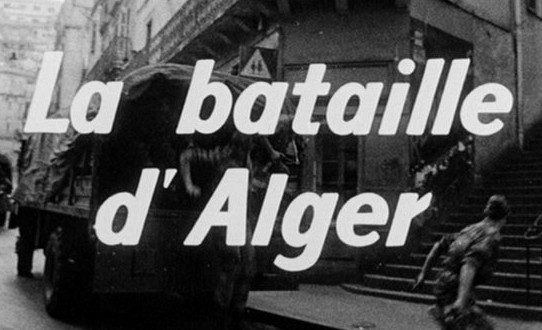
Pontecorvo's The Battle of Algiers is by no means an extraordinarily revolutionary film stylistically. Sure, it has a documentary-esque feel to express realism and puts the viewer in the action of the scene, but that had been done before with Battleship Potemkin (the one with the baby carriage falling down the stairs). And yes, the score was done by Ennio Morricone, a badass composer. But why is this movie part of the Criterion Collection? Why is there all this hubbub about a foreign, black-and-white, no-gore-no-sex, unprofessional-acting film? It's all about the timelessness, baby.
Peter Rainer of the New York Times Magazine writes:
"What reveals Pontecorvo as an artist, and not simply a propagandist of genius,
is the sorrow he tries to stifle but that comes flooding through anyway—the
sense that all sides in this conflict have lost their souls, and that all men
are carrion."
It is clear that Pontecorvo's purposes were not to side with either the French or the Algerians, but in doing so, he demonstrated that both sides were at fault, and both sides represent the innate self-preservation of man. The fact that this is a fundamental problem allows for many generations to see a piece of themselves in the film. For instance, it be applied as a reflection of the decline of European imperialism and how perhaps colonization and occupation may not be the best solution (cough cough ahem). It has been deemed an allegory for the Vietnam War. Both the Black Panthers AND the Pentagon have screened it for training purposes. The film truly does transcend the apparent differences in people and the eras they live in. And that, consequently, defines an unparalleled artistry.

No comments:
Post a Comment